MercoPress. South Atlantic News Agency
Tag: Federal Reserve
-
Thursday, December 16th 2021 - 09:43 UTC
What is the Federal Reserve tapering; the end of rock bottom interest rates?

By Edouard Wemy – Tapering refers to the Federal Reserve policy of unwinding the massive purchases of Treasury bonds and mortgage-backed securities it’s been making to shore up the economy during the pandemic.
-
Thursday, December 16th 2021 - 09:41 UTC
Fed faces inflation: taper concludes in March and three 0,25% rate hikes by end of 2022

With US inflation reaching 6,8% in November, the highest in four decades, and following a two-day meeting, the Federal Reserve announced it was ending its asset purchase program earlier than expected anticipating several interest rate increases in 2022.
-
Thursday, December 16th 2021 - 09:28 UTC
FOMC Release, 15 December

The Federal Reserve is committed to using its full range of tools to support the U.S. economy in this challenging time, thereby promoting its maximum employment and price stability goals.
-
Saturday, December 4th 2021 - 09:10 UTC
Inflation beats the Fed: the word “transitory” eliminated from forecasts
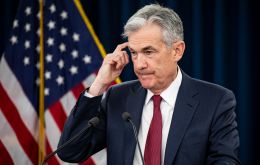
Federal Reserve policymakers finally acknowledge the increasing risk of more persistent inflation in months ahead and thus the word “transitory” has been eliminated from the inflation forecasts.
-
Wednesday, December 1st 2021 - 08:56 UTC
US Fed chairman warns inflation will stay around longer than expected

Jerome Powell, chairman of the US Federal Reserve, the Republican who has just been entrusted by President Joseph Biden for another term in office, Tuesday told Congress inflation might be here to stay a while longer, in the face of the Omicron C19 variant.
-
Tuesday, November 23rd 2021 - 20:01 UTC
Biden endorses Powell for yet another term as Federal Reserve head
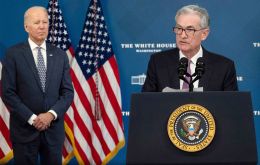
US President Joseph Biden has announced he wanted Republican lawyer Jerome Powell to stay at the helm of the United States Federal Reserve (Fed) for a second four-year term.
-
Monday, November 8th 2021 - 08:19 UTC
Federal Reserve transparency: tough conflict of interest rules for Board members and senior staff
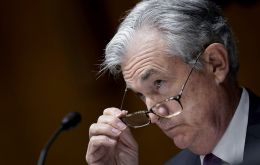
The United States Federal Reserve Board announced a broad set of new rules that will prohibit the purchase of individual securities, restrict active trading, and increase the timeliness of reporting and public disclosure by Federal Reserve policymakers and senior staff.
-
Thursday, November 4th 2021 - 09:33 UTC
Federal Reserve begins gradual monthly tapering of stimulus this month
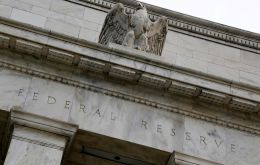
Finally, following a two-day meeting, it's official: the US Federal Reserve announced on Wednesday it will begin tapering stimulus to the economy this month but also leaving the door open for possible changes if there are shifts in the scenario because of the pandemic. Likewise, inflation was described as “transitory” because of supply chain issues in the post-pandemic recovery.
-
Thursday, October 14th 2021 - 21:34 UTC
Fed minutes: tapering round the corner but inflation remains controversial
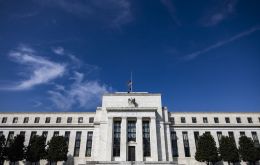
The United States Federal Reserve is expected to begin cutting on emergency support for the US economy in mid-December at the latest, if not even in mid-November, according to the minutes from September's meeting released this week.
-
Saturday, August 21st 2021 - 09:15 UTC
Fed could announce this week the assets purchase reduction calendar
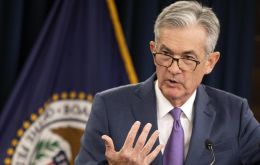
The United States Federal Reserve could begin withdrawing economic stimuli sometime in the next four months and advances of such a program could be anticipated this week at the Jackson Hole central bankers meeting 26/27 August.
